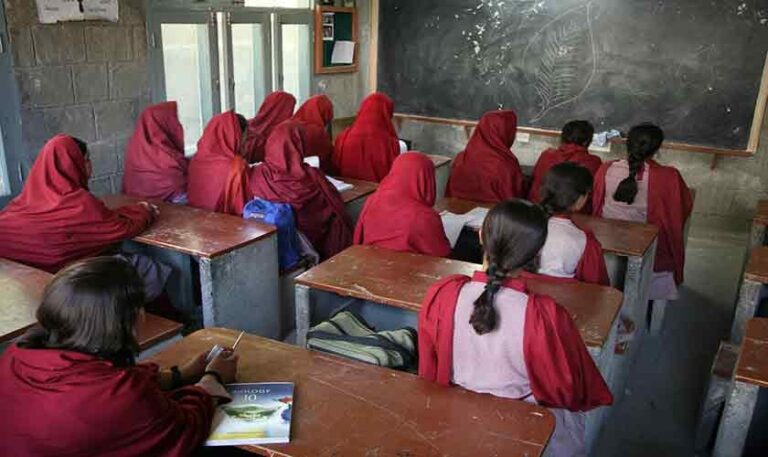
#Harassment #law #missed #promise #Political #Economy
In 2010, Pakistan passed a landmark law to protect women from harassment at work. The protection of women against harassment in the Workplace Act was hailed as an important step towards equality and dignity. For the first time, women were told they had a legal right to safety at work.
Fifteen years later, this promise was only partially fulfilled. Even after the 2022 amendment, the law still focuses on formal workplaces and misses the broader places where most Pakistani women live and work. Homes, streets, fields, markets and digital platforms.
The 2010 Act required all public and private organizations to adopt a code of conduct and set up inquiry committees to deal with complaints. This was an important recognition of women’s rights, but it also limited the idea of harassment to acts of a sexual nature.
This limited scope was reinforced in the 2021 Nadia Naz case, when the Supreme Court ruled that the act only covered sexual harassment, not gender-based discrimination or verbal abuse. The decision left women who faced humiliation, exclusion or hostility without sexual intent outside the protection of the law.
The 2022 amendment sought to address this gap. It broadened the definitions of “workplace,” “employee,” and “harassment,” to cover freelancers, domestic workers, and online spaces. It also included “gender discrimination” as a form of harassment. But these improvements did not fundamentally change the structure of the law. It still assumes an employer-employee relationship and formal office environment. Facts that exclude most of the working women in Pakistan.
More than 60 percent of Pakistani women work informally, often without contracts or legal protection. They work in homes, fields, factories or on the streets. They are among the least protected groups, yet the law does not provide clear channels for them to report abuse. For example, domestic workers and online freelancers rarely have access to the committees or ombudsmen that the Act relies on.
The system itself is reactive. It waits for women to file complaints—many are unable or afraid to do so because of reprisals, social stigma, or lack of trust in institutions. This process provides awareness and access to justice that most women do not have.
In reality, harassment in Pakistan goes far beyond the walls of the office. It happens in homes, schools, hospitals, buses and online spaces. Harassment in a private home or a passenger on public transport harassing a domestic helper may not use statutory remedies. For many, there is no “workplace” as the law understands it.
In reality, harassment in Pakistan goes far beyond the walls of the office. It happens in homes, schools, hospitals, buses and online spaces. Harassment in a private home or a passenger on public transport harassing a domestic helper may not use statutory remedies.
Media and online platforms have made the problem worse. Rather than promoting accountability, sensationalized coverage often turns women’s suffering into a public spectacle. Harmful online content fuels misogyny and objectification rather than respect.
Law also works in isolation. It does not relate to other systems – such as labor inspection, cybercrime, or child protection laws – that could help create a more comprehensive approach. Without coordination between institutions, prevention programs, and public education, it is a procedural law rather than a social tool for change.
What Pakistan needs is a broader vision of security. The law should cover all forms of work and all forms of harassment, including gender-based hostility and discrimination. It should also include clear provisions for domestic and informal workers, students and children.
Institutionally, the government can create “gender justice desks” at the district level where any woman can report harassment – be it at work, home, school or online. Ombudsman systems should be linked to labor and social welfare departments, and regulators should monitor online and media spaces for abusive or exploitative content.
Cultural change is equally important. Employers, teachers, media professionals, and local communities need training and awareness to prevent harassment rather than just punishing it after the fact. The national conversation must shift from “safety at work” to “dignity everywhere.”
Women’s safety isn’t just a moral issue — it’s an economic one. When women feel insecure, they withdraw from public life and work, limiting national productivity. Reducing gender-based insecurity can add billions to Pakistan’s GDP and strengthen households and communities.
The Constitution of Pakistan guarantees equality, dignity and participation of women in all sectors. Islam also upholds the protection of women as a collective duty. Yet Pakistan ranks at the bottom of the global gender gap index, which shows how far reality lags behind ideals.
The 2010 law and its 2022 amendment are steps forward, but they still focus on the simplest area—the formal workplace. They do not reach the places where most women actually live and earn. Real progress requires a shift from paperwork to practice, from punishment to prevention and from workplace committees to gender justice across the country.
For Pakistani women, dignity should not depend on where they work or what they earn. It should be a fundamental right – guaranteed not only by law but by culture, community and conscience. The real measure of justice is not how society reacts after harm, but how it prevents harm before it occurs.
The author is a public policy and inclusive development expert, former civil servant, and corporate lawyer. He can be reached at rania.ahsan1@gmail.com






